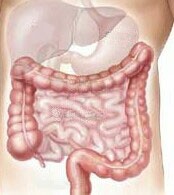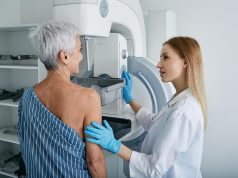Findings for consistent use over 5 or more years
TUESDAY, Aug. 25, 2015 (HealthDay News) — Regularly taking low-dose aspirin or other nonsteroidal anti-inflammatory drugs (NSAIDs) may lower long-term risk of colorectal cancer (CRC), new research suggests. The study was published online Aug. 25 in the Annals of Internal Medicine.
John Baron, M.D., a professor of medicine at the University of North Carolina School of Medicine in Chapel Hill, and colleagues reviewed data from several Danish cancer databases to gather the health histories of 10,280 CRC patients diagnosed between 1994 and 2011. Patients were between the ages of 30 and 85. Medical records were evaluated for aspirin and non-aspirin NSAID consumption patterns.
A comparison of cancer patients with 102,800 cancer-free individuals revealed that regular, long-term use of low-dose aspirin and NSAIDs seemed to confer long-term protection against CRC. The biggest benefit was linked to agents with high cyclooxygenase-2 selectivity. Taking low-dose (75 to 150 mg) aspirin for five years or more was associated with a 27 percent risk reduction in both men and women. And taking NSAIDs such as ibuprofen for that long was linked to a 30 to 45 percent drop in CRC risk.
Baron emphasized that the drugs were taken continuously for years before any cancer-preventive benefits were realized. “For aspirin, you would have to take it fairly consistently, meaning at least every other day, for at least five to 10 years for the protective effect to even begin to appear,” he told HealthDay.
Full Text (subscription or payment may be required)
Copyright © 2015 HealthDay. All rights reserved.








